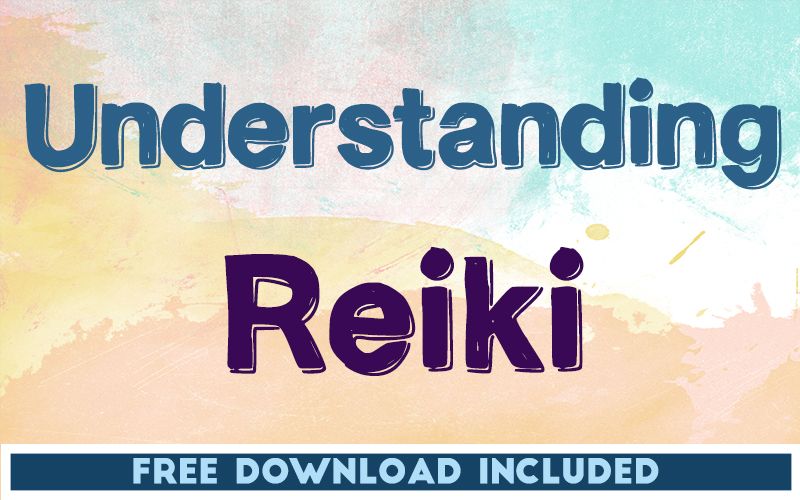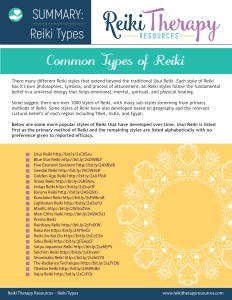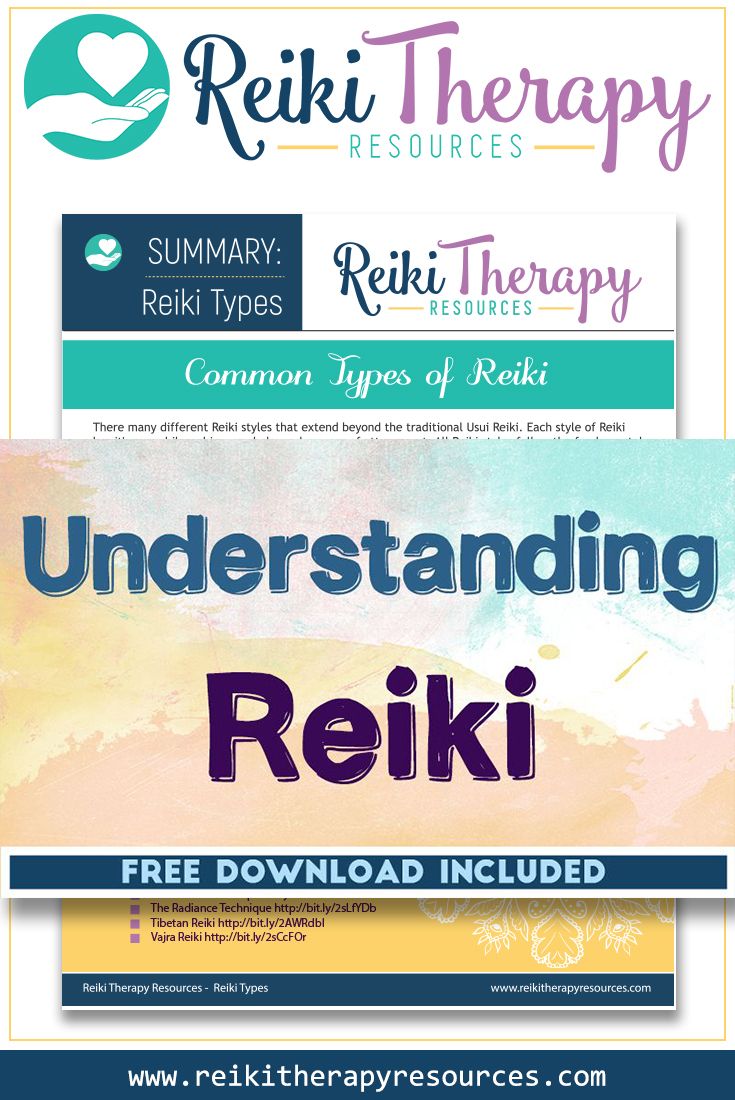
THIS POST INCLUDES:
——————————————–
1. The purpose of Reiki
2. Physiological effects of Reiki
3. Emotional effects of Reiki
4. Reiki in Everyday Life
5. Free Download Types of Reiki Summary Guide
THE PURPOSE OF REIKI
At its core, Reiki is a complementary form of human therapy that functions in the form of positive energy wellbeing. The therapeutic aspects cover both physical and psychological domains that are intertwined. If we feel physically well, this impacts our mental health and vice versa.
We are familiar with treating our psychological and physical health when things go wrong, however, we can also care for our wellbeing as a preventative measure. Reiki provides an excellent way of investing in preventative measures for this benefit.
Reiki can provide significant benefits for relaxation and stress reduction. By engaging in Reiki, we are using a self-help technique that supports our desire to manage and improve our wellbeing.
Reiki keeps us connected to the important things in our life. It reminds us of human connection as well as our connection to nature and all living beings on our planet.
The purpose of Reiki is to help guide us through establishing these important connections and building a better support system that will bring peace and natural healing into our lives.
PHYSIOLOGICAL EFFECTS OF REIKI
As with any medical condition, primary issues should be diagnosed by professionals and treated within the context of the medical model. Reiki remains an excellent complementary treatment for many physiological conditions. Reiki can also be helpful when clients are seeking diagnoses within traditional medical models that may not provide immediate answers. In these situations, people are often suffering from symptoms that are not treated while a diagnosis is ongoing.
Reiki can help with the ongoing distress people may be experiencing while also coping with their primary physiological symptoms. This includes stress and worry about how to cope with the effects on daily living.
Reiki can help those with physiological issues by developing coping strategies so the client can undertake physical treatment and meet the psychological demands that may affect them. This can include engaging in mindfulness, maintaining motivation, and holding a positive mindset while undertaking treatment for physiological issues.
Other areas that Reiki can help clients with physiological issues include:
- Establishing self-care practices
- Relaxation skills
- Reducing physical suffering through relaxation exercises
- Decreasing anxiety around physical pain
- Cope with fatigue
- Reduce physical tension
For many people with physiological issues, physical discomfort can be an enduring experience. Reiki can help people develop relaxation strategies to cope with their experiences.
Aside from helping with physiological issues, Reiki can also have a positive effect on those who are looking to maintain good health or deal with the general physical experience of daily living. This includes maintaining healthy levels of sleep, relaxation, and physical movement.
Reiki helps promote a positive daily practice that can provide beneficial self-care for the recipient. Reiki can help boost energy levels and play a significant role in the individual managing the physical demands that we all experience as we go about our lives.
Reiki has been shown to activate the parasympathetic nervous system that helps heal the body as well as reduce heart rate and blood pressure.
EMOTIONAL EFFECTS OF REIKI
Reiki is seen to have a significant effect on improving emotional and mental health symptoms. Many participants in Reiki research suggest that Reiki had a significant impact on improving depression, anxiety, and overall feelings of stress.
Participants also mention improvements in sleep quality, relaxation, energy levels, and general wellbeing. Many of those who receive Reiki also mention that Reiki provides them with a level of self-care that helps them identify how they are feeling emotionally. This information helps them to focus on what aspects of their emotional wellbeing they can pay attention to.
Emotions are a part of every human experience and can determine the quality of our lives in either a positive or negative way. Emotions help us deal with traumatic events and also provide enjoyment. Both of these types of experiences can be short lived or impact our lives over a long period of time.
Some of the ways how emotions help in our life are:
- They help us deal with traumatic events
- They help enhance enjoyable moments
- They help us adapt to circumstances
- They initiate a change in behavior where it’s necessary for both our safety and pleasurable events
- They create a change in physiological responses
- They can enhance memories
- They help us negotiate interpersonal interactions
- They help us evaluate ourselves in situations
- They enhance learning
When our emotional development is healthy, we exhibit appropriate emotions for appropriate events and learn to regulate the intensity and frequency of emotions so that our lives can return to normal after an emotionally triggering event. Emotions in these situations are viewed as constructive to our experiences.
However, if our emotional development has been negatively impacted in early life, the expression of emotion can be excessive in intensity and occur erratically with a destructive effect on our lives.
Healing emotional problems is dependent on the circumstances in which the emotional problems began. Emotional issues that relate to a singular event such as death are viewed differently than emotional issues that are tied to ingrained behavioral components of personality development. Regardless of the antecedent of the emotional issues, it is important to cultivate emotional awareness and emotional regulation techniques to use on an ongoing basis.
A part of healing is developing a therapeutic relationship where change can occur. If you are working through a self-help process, this involves developing a personal relationship with yourself where you begin to trust yourself and your intuitive process.
When working with clients in your Reiki practice, you will build an ongoing relationship of trust and empathy with your client. Developing this relationship helps your client experience an emotional deepening and develop skills for emotional regulation. It is important to collaborate with your client and be sensitive to your client’s emotional experience. This includes following your client’s personal emotional growth.
We’ve written many blog posts about how Reiki can benefit us with emotional issues including:
- Detach from Fear, Connect to Love
- Using Reiki for a Client Who Is Grieving
- Using Reiki for a Client with Anxiety
- Using Reiki For Your Own Self-Care
- Using Reiki to Deal with Anger
As Reiki refers to life force and the energy within which we live, it also pays homage to our emotional connections to important relationships, as well as how we function within social groups. This can include family, friends, and more formal groups such as work situations.
Reiki can help us improve our emotional outlook in a variety of situations by helping us regulate our emotions and review our situation from a place of safety, emotional strength, and clear wisdom.
REIKI IN EVERYDAY LIFE
Reiki is predicated on the idea of life’s energy which is the premise of how we live our daily lives. We require energy to cope with our daily demands and more energy to undertake our goals and dreams.
Reiki can help us manage this energy and direct our attention to what we need to nurture our wellbeing and flourish in our environment.
Reiki has developed 5 core principles, listed below, that focus on emotional issues as well as having a positive attitude towards wellbeing:
- Just for today, I will not anger
- Just for today, I will not worry
- Just for today, I will be grateful
- Just for today, I will do my work honestly
- Just for today, I will be kind to all living things
By embracing these principles and engaging in Reiki practice, we can positively affect our everyday life. On a practical basis this can result in:
- Releasing feelings of anger
- Releasing feelings of anxiety and worry
- Establishing gratitude practices
- Developing mindfulness
- Improving sleep health
- Improving physical wellbeing
These practical measures above are areas of difficulties we may experience in everyday life where Reiki can be used. However, there are also more mundane areas in life where we can apply Reiki such as:
- Watering plants
- Caring for pets
- Preparing food
- While we work
- Throughout our home
- Undertaking hobbies eg sport, art, music etc
Reiki is beneficial when it is incorporated into every part of your daily living. It can provide tangible benefits on both an emotional and physical level. It can also remind us how we can use our intentions to create meaningful purpose and action in our lives.
FREE DOWNLOAD
SIGN UP below to receive your FREE DOWNLOAD. Once you enter your email address, you will receive access to the Free Types of Reiki Summary Guide.

BUILD YOUR REIKI REFERENCE MATERIALS:
Pin this image to your Pinterest board.

SHARE KNOWLEDGE & PASS IT ON:
If you’ve enjoyed this post, please share it on Facebook, Twitter, Pinterest. Thank you!
